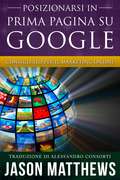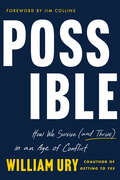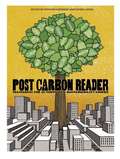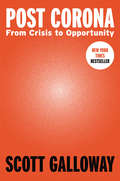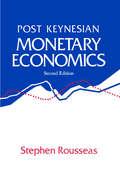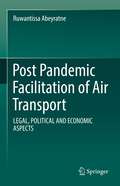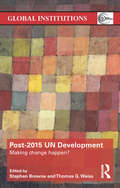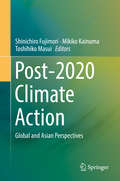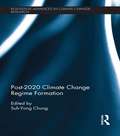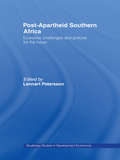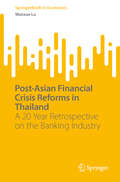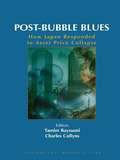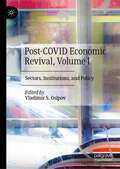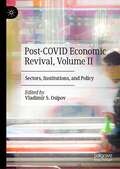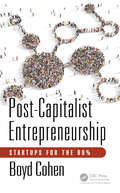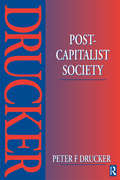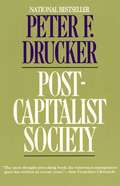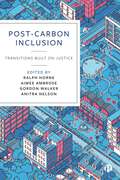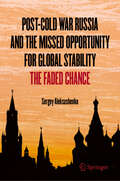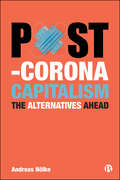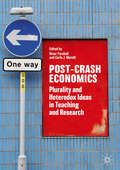- Table View
- List View
Posizionarsi in Prima Pagina su Google - Consigli SEO per il Marketing Online
by Jason Matthews Alessandro ConsortiArrivare in prima pagina su Google tramite facili suggerimenti SEO. Semplicemente tramite il SEO (search engine optimization) si può far arrivare qualsiasi sito in cima, senza spendere soldi. Scoprite nuovi modi di usare le parole chiave, i meta description ed i tag, categorie/etichette, titoli, costruzione di link ed altro. Istruzioni dettagliate per aiutare il vostro sito a raggiungere la prima pagina di Google. Tutti possono farcela. Non costa nulla a parte un po' di tempo. Scoprirete: *le migliori parole chiave, sia di tipo short-tail che long-tail *meta tag con meta description nel sorgente della pagina *modi di ottimizzare testo ed immagini *collegamenti URL di ritorno verso altri siti *come monitorare le tendenze dei visitatori *piattaforme online e come incrementare la visibilità *strumenti per il social media (Google Plus, Facebook, Twitter, ecc.) *come collegarsi con persone di tutto il mondo *molto altro... In un periodo che va da poche settimane a qualche mese, vedrete risultati reali ed arriverete in prima pagina. Argomenti trattati: SEO, suggerimenti SEO, Google, Google AdWords, ottimizzazione dei motori di ricerca, marketing online, business online, internet marketing, internet business, e-commerce, e-business, parole chiave, keyword planner, ricerca delle parole chiave, blog, blogging, AdWords, Bing
Posse Foundation: Developing Strong Leaders from Diverse Backgrounds
by John J-H Kim Julia Kelley Robin MendelsonFounded in 1989, Posse Foundation was a nonprofit organization with a mission of developing future leaders who reflected the U.S.'s rich diversity. The organization ran a selective, localized admissions process in 10 U.S. cities to identify outstanding students with leadership potential, known as Posse Scholars. Then, it placed them in "posses" - groups of 10 Scholars from the same city - at selective U.S. higher education institutions, which agreed to provide full tuition to all selected Scholars. Although Posse did not screen applicants for race or financial need, it focused selection efforts in areas with racial and socioeconomic diversity. Posse received national recognition and expanded considerably in the decades after its founding, but by 2020 its growth had started to plateau. In 2020, during the COVID-19 pandemic, Posse signed up several new partners, driven in part by a new, virtual selection option that could find Scholars from locations beyond the cities where Posse maintained brick-and-mortar offices. The virtual option might help Posse scale, but it was not yet clear whether bringing together Scholars from different places versus from the same city would have any implications for the program's effectiveness. Looking ahead, Posse Founder and CEO Deborah Bial considered how to continue Posse's momentum and sign up more institutional partners. Posse focused exclusively on roughly 150 of the most selective colleges and universities, and some prospective partners were unwilling or unable to work with Posse unless it only selected students with financial need. Expanding the list of potential partners or adding a financial need screen might yield more partnerships, but Bial and the rest of the Posse team believed that working with selective institutions and being solely merit-based were key parts of Posse's identity and its ability to achieve its mission. How could Posse best position itself for continued scaling?
Possessors and Possessed: Museums, Archaeology, and the Visualization of History in the Late Ottoman Empire
by Wendy M. K. ShawA history of the creation of museums in Ottoman Turkey, which demonstrates that museum-building was both a product of and a response to European imperialism.
Possible: How We Survive (and Thrive) in an Age of Conflict
by William UryThe author of the world’s best-selling book on negotiation draws on his nearly fifty years of experience and knowledge grappling with the world’s toughest conflicts to offer a way out of the seemingly impossible problems of our time. Conflict is increasing everywhere, threatening everything we hold dear—from our families to our democracy, from our workplaces to our world. In nearly every area of society, we are fighting more and collaborating less, especially over crucial problems that demand solutions.With this groundbreaking book, bestselling author and international negotiator William Ury shares a new “path to possible”—time-tested practices that will help readers unlock their power to constructively engage and transform conflict. Part memoir, part manual, part manifesto, Possible offers stories and sage advice from Ury’s nearly 50 years of experience on the front lines of some of the world’s toughest conflicts.One of the world’s top experts in the field, Ury has worked on conflicts ranging from boardroom battles to labor strikes, from the US partisan divide to family feuds, from wars in the Middle East, Colombia and Ukraine to helping the US and USSR avoid nuclear disaster. Now, in Possible, he helps us tackle the seemingly intransigent problems facing us.In Possible, Ury argues conflict is natural. In fact, we need more conflict, not less—if we are to grow, change, evolve and solve our problems creatively. While we may not be able to end conflict, we can transform it—unleashing new, unexpected possibilities.Successfully tested at Harvard University with almost a thousand participants from business, government, academia, and the nonprofit sector, Ury’s “Path to Possible” proved so valuable that Harvard’s Program on Negotiation selected it as its inaugural online daylong in April 2022.Possible introduces Ury’s methods and makes them available for everyone. Combining accessible frameworks and powerful storytelling and offering dozens of examples, it is an essential guide for anyone looking to break through the toughest conflicts—in their workplace, family, community or the world.
Post Carbon Reader: Managing the 21st Century's Sustainability Crises
by Richard Heinberg Daniel LerchHow do population, water, energy, food, and climate issues impact one another? What can we do to address one problem without making the others worse? The Post Carbon Reader features essays by some of the world's most provocative thinkers on the key issues shaping our new century, from renewable energy and urban agriculture to social justice and community resilience. This insightful collection takes a hard-nosed look at the interconnected threats of our global sustainability quandary and presents some of the most promising responses. Book jacket.
Post Corona: From Crisis to Opportunity
by Scott Galloway"This is as good an analysis as you could wish to read." --The Financial TimesFrom bestselling author and NYU Business School professor Scott Galloway comes a keenly insightful, urgent analysis of who stands to win and who's at risk to lose in a post-pandemic worldThe COVID-19 outbreak has turned bedrooms into offices, pitted young against old, and widened the gaps between rich and poor, red and blue, the mask wearers and the mask haters. Some businesses--like home exercise company Peloton, video conference software maker Zoom, and Amazon--woke up to find themselves crushed under an avalanche of consumer demand. Others--like the restaurant, travel, hospitality, and live entertainment industries--scrambled to escape obliteration.But as New York Times bestselling author Scott Galloway argues, the pandemic has not been a change agent so much as an accelerant of trends already well underway. In Post Corona, he outlines the contours of the crisis and the opportunities that lie ahead. Some businesses, like the powerful tech monopolies, will thrive as a result of the disruption. Other industries, like higher education, will struggle to maintain a value proposition that no longer makes sense when we can't stand shoulder to shoulder. And the pandemic has accelerated deeper trends in government and society, exposing a widening gap between our vision of America as a land of opportunity, and the troubling realities of our declining wellbeing.Combining his signature humor and brash style with sharp business insights and the occasional dose of righteous anger, Galloway offers both warning and hope in equal measure. As he writes, "Our commonwealth didn't just happen, it was shaped. We chose this path--no trend is permanent and can't be made worse or corrected."
Post Keynesian Monetary Economics
by RousseasDuring the past five years, crises in the US savings and loan industry, commercial banks, and other financial institutions have borne out the ideas that Rousseas expressed in the first edition. His main theme stresses the role of innovation in the financial sector of the economy and its implications for control of the money supply and credit, as well as the larger issue of macroeconomic policy. He holds a Post-Keynesian view of an elastic and endogenous money supply that is largely founded on the "general liquidity thesis" of the Radcliffe Committee. Indeed, the elasticity of the credit structure is even greater than the Radcliffe Committee originally claimed. Tables and charts are revised through 1990, and the text has been revised accordingly. An expanded preface to the revised edition makes this book very relevant to contemporary problems and policy.
Post Pandemic Facilitation of Air Transport: LEGAL, POLITICAL AND ECONOMIC ASPECTS
by Ruwantissa AbeyratneFrom early 2020 for a period of two years at the end of which this book was written, air transport suffered unprecedented setbacks due to the COVID-19 pandemic. Although the pandemic may eventually fizzle out into another flu like occurrence, the restraint with which air transport services were offered would remain with us for a while with some practices being sustained, particularly those pertaining to public health. One of the main areas of air transport that was and will be affected significantly by the changed circumstances - is facilitation – a subject that is regulated by the Chicago Convention of 1944 and its Annex 9. This book looks in depth at the Annex as it will be applied in a post pandemic world, against its legal, socio-political, and economic impacts, addressing the Standards of the Annex on clearance of aircraft; entry and departure of passengers; and the carriage of cargo. It also discusses some critical aviation events in 2020 and 2021 that occurred as they relate to facilitation of air transport. Some of the key areas discussed are the role of ICAO; issues of public health as they relate to air transport; security of travel documents; smuggling of persons; digital technology and rights of the passenger; unruly passengers; carriage of disabled passengers; relief flights and repatriation flights; and facilities at airports.
Post-2015 UN Development: Making Change Happen? (Global Institutions)
by Stephen Browne & Thomas G. WeissIn 2000, at the United Nations Millennium Summit, world leaders agreed to the Millennium Declaration. The Declaration included development targets to be reached by 2015, which were to become known as the Millennium Development Goals (MDGs). Progress has been made towards the achievement of the MDGs, but poverty remains widespread. With the terminal year approaching, the international community has begun the process of determining the goals which might follow the MDGs. While the UN is driving the process, there has been very little introspection on its own organizational capacity to help countries to meet the goals and is being increasingly sidelined by other more effective development organizations and initiatives. Based on extensive original research that has critically examined the role and functions of the organizations of the UN development system, this book seeks to capture in a single volume a comprehensive review of the UN’s performance and prospects for development. The contributors each offer extensive experience and familiarity—as practitioners and researchers—with the UN and development; and the book will contribute to the urgently needed debate on the reform of the UN development system at a critical juncture. The main rationale for this book, and its timing, is the unusual opportunity provided by the 2015 threshold to re-think the UN development system and to empower it to support a new development agenda and will be of interest to students, scholars of International Organizations and development studies.
Post-2020 Climate Action
by Shinichiro Fujimori Mikiko Kainuma Toshihiko MasuiThis book summarizes assessments of the Paris Agreement to provide an excellent introduction to this research field. The AIM/CGE (Asia-Pacific Integrated Modeling /Computable General Equilibrium) model, which is the core of AIM modeling framework, is used for the assessment. The first part focuses on global issues, presenting both short-term (a few decades) and long-term (century scale) assessments in the context of the Agreement's ultimate climate goal. It also discusses policy implementation and climate risk. Part 2 is a collection of assessments of individual Asian countries, providing insights into the national situations and detailed analyses. It includes contributions from Asian countries as well as NIES (National Institute for Environmental Studies, Japan) members. The main conclusion is that many countries require changes to their energy systems change and societal transformation in order to meet emissions targets. Part 3 describes in detail the AIM/CGE model, which is used to evaluate the climate and energy policies by simulating the future economic and energy and environmental situation in the Asia-Pacific region. This section can be used as a standard text on CGE modelling in climate change mitigation.
Post-2020 Climate Change Regime Formation (Routledge Advances in Climate Change Research)
by Suh-Yong ChungThe fate of the climate change regime hangs in the balance as the UN-led negotiations try to forge a new international strategy for the post-2020 period. Since 1992, the UNFCCC and its Kyoto Protocol has been the primary legal instrument to respond to the climate challenge. However, the intergovernmental process has been riddled with problems that have rendered it ineffective. The changing economic landscape has further made this country grouping problematic as some developing countries now emit more than some of their advanced counterparts. Such problems have crippled the existing regime in adequately addressing climate change. Building upon the expertise of the contributors of this volume, this ground-breaking collection aims to show the way forward for the intergovernmental process. It is the first of its kind to explore the key features of the regime, featuring meticulously researched pieces from leading experts in the field. Each chapter responds to the questions surrounding the political and structural limitations of the current top-down approach taken in climate negotiations and proposes various alternatives countries can take to overcome such limitations in the process of building the post-2020 climate change regime. In particular, this collection underscores the concept of low-carbon development and green growth to make the climate change regime more effective.
Post-Apartheid Southern Africa: Economic Challenges and Policies for the Future
by Lennart PeterssonThis volume brings together some of the best-known and highly-regarded academics in the field to present a timely and comprehensive review of the prospects for economic integration and development in Southern Africa, and to analyse alternative strategies and policies for the future. It presents in-depth country-specific studies of Botswana, Lesotho
Post-Asian Financial Crisis Reforms in Thailand: A 20 Year Retrospective on the Banking Industry (SpringerBriefs in Economics)
by Wanxue LuThis book is distinguished for its longitudinal, evidence-based policy analysis concerning the impacts of financial regulatory reforms post-crisis, thereby enriching the comprehension of policy impact mechanisms at a micro-level. Distinguished from collections of past events; this monograph is a lens through which the intricate relationships between regulatory changes, market dynamics, and organizational behavior are explored and understood. The study is devoted to a thorough 20-year retrospective analysis of Thailand's financial regulatory reforms and their complex effects on the commercial banking sector. It uncovers how these reforms, particularly the increase in foreign participation, have paradoxically degraded market competition while also not fully achieving their intended goals in financial technology advancement. This nuanced understanding underscores the book's impact in rethinking policy effectiveness and market dynamics in a global context. Moreover, by offering a unique blend of macro- and micro-perspectives, the book delves into how these regulatory impacts materialize at the organizational level. Through an in-depth examination of business practices and governance in banking, it provides vital insights into how family-owned banks in Thailand have navigated economic crises, transitioning from ownership control to management control models.
Post-Bubble Blues: How Japan Responded to Asset Price Collapse
by Tamim BayoumiJapan accounts for over half the output of the Asian region, but for much of the 1990s its economy was virtually stagnant, and it is only just emerging from its worst recession since the Second World War. In this book, a team from the International Monetary Fund (IMF) examines the causes of the lingering economic problems of Japan, the crisis in its banking system, the reasons for weak business investment, and the government's efforts to kick-start the economy through a series of stimulus packages. The main premise of the book, that banking reform and corporate restructuring are central to any sustained revival of the economy, is backed up by detailed background research
Post-COVID Economic Revival, Volume I: Sectors, Institutions, and Policy
by Vladimir S. OsipovThis two-volume book examines the most important global problem—the recovery of the social-economic crises due to the COVID-19 pandemic. This economic crisis has its own basis and differs from others by the lockdown of most businesses on the decision of authorities. The uncertainty of the future economic revival obliges scientists around the world to unite in search of effective solutions that will become the basis for prosperity and human wellbeing.The death of millions of people around the world, several waves of coronavirus, and a global pandemic have forced most states to seek extraordinary measures to save people and revive economic activity. The world economy experienced a global shock, probably never experienced before due to lockdowns. The disruptions and gaps in the value chains were primarily caused by the lockdowns of enterprises. The change in the essence of the economic crisis has raised the question of how to overcome it and revive economic activity. The crisis caused a sharp decline in incomes of the population around the world, which led to social upheavals. Post-COVID economic revival in a globalized world has become the most important problem of our time. This book offers contributions of authors from different countries and explores problem solving in the fields of public administration (Volume I, Part I), financial services (Volume I, Part II), different branches (Volume II, Part III) and the social sector (Volume II, Part IV).The first volume discusses governmentality, public, and corporate management. The second part of the volume reveals the trends in the development of the financial sector in the post-COVID period. Despite the fact that the book is divided into two volumes and four parts, a holistic and systematic perception of the new reality of the post-COVID age can be obtained by reading the entire book. This book will be of interest to academics and practitioners in public administration and economics, particularly those who are interested in Post-COVID economic revival.
Post-COVID Economic Revival, Volume II: Sectors, Institutions, and Policy
by Vladimir S. OsipovThis two-volume book examines the most important global problem—the recovery of the social-economic crises due to the COVID-19 pandemic. This economic crisis has its own basis and differs from others by the lockdown of most businesses on the decision of authorities. The uncertainty of the future economic revival obliges scientists around the world to unite in search of effective solutions that will become the basis for prosperity and human wellbeing. The death of millions of people around the world, several waves of coronavirus, and a global pandemic have forced most states to seek extraordinary measures to save people and revive economic activity. The world economy experienced a global shock, probably never experienced before due to lockdowns. The disruptions and gaps in the value chains were primarily caused by the lockdowns of enterprises. The change in the essence of the economic crisis has raised the question of how to overcome it and revive economic activity. The crisis caused a sharp decline in incomes of the population around the world, which led to social upheavals. Post-COVID economic revival in a globalized world has become the most important problem of our time. This book offers contributions of authors from different countries and explores problem solving in the fields of public administration (Volume I, Part I), financial services (Volume I, Part II), different branches (Volume II, Part III) and the social sector (Volume II, Part IV). The second volume of the book is devoted problems in sectors of the economy, such as agriculture, tourism, aircraft, the automotive industry, electricity, culture, etc. The second part of the second volume examines trends in the revival in the social sector—medicine, pharmaceuticals, the labor market and social insurance. Despite the fact that the book is divided into two volumes and four parts, a holistic and systematic perception of the new reality of the post-COVID age can be obtained by reading the entire book. This book will be of interest to academics and practitioners in public administration and economics, particularly those who are interested in Post-COVID economic revival.
Post-Capitalist Entrepreneurship: Startups for the 99%
by Boyd CohenPost-Capitalist Entrepreneurship: Startups for the 99% details the implications of the post-capitalist society on entrepreneurship around the globe, and it challenges many of our underlying assumptions about how entrepreneurs form startups and the objectives and roles, or lack thereof, of startup investors in a post-capitalist society. The author explores real emerging stories about different forms of post-capitalist entrepreneurship (PCE) with chapters dedicated to subjects such as platform cooperatives, alternative currencies (local, crypto, and time banking), and the emergence of blockchain-enabled Distributed Autonomous Organizations (DAOs).This book will help aspiring and current entrepreneurs, investors and policymakers to: Understand emerging trends in new forms of economic activity that will shape the future of entrepreneurial opportunities Discover new approaches to business modeling in the post venture-capital opportunity space Embrace Lean startup and collaborative startup approaches that can accelerate startups in these new markets Recognize new spaces and avoid being disintermediated by new forms of startups and financing Know why and how local governments should reshape entrepreneurship policy to support post-capitalist entrepreneurship for the 99%
Post-Capitalist Society
by Peter DruckerWe are in the middle of another time of radical economic change, from the Age of Capitalism and the Nation-State, to a Knowledge Society.
Post-Capitalist Society
by Peter Drucker"The basic economic resource - 'the means of production', to use the economist's term - is no longer capital, nor natural resources, nor 'labour'. it is an will be knowledge."With penetrating insight Peter Drucker describes the changes that are affecting politics, business and society itself. It is vital that we are aware of and understand these changes in order to benefit from the opportunities that the future has to offer.
Post-Capitalist Society
by Peter F. DruckerBusiness guru Peter Drucker provides an incisive analysis of the major world transformation taking place, from the Age of Capitalism to the Knowledge Society, and examines the radical affects it will have on society, politics, and business now and in the coming years. This searching and incisive analysis of the major world transformation now taking place shows how it will affect society,economics, business, and politics and explains how we are movingfrom a society based on capital, land, and labor to a society whoseprimary source is knowIedge and whose key structure is theorganization.
Post-Carbon Inclusion: Transitions Built on Justice
by Ralph Horne, Aimee Ambrose, Gordon Walker and Anitra NelsonThis collection pays unique attention to the highly challenging problems of addressing inequality within decarbonisation – particularly under-explored aspects, such as high consumption, degrowth approaches and perverse outcomes. Contributors point out means and possibilities of the transition from high carbon inequalities to post-carbon inclusion. They apply a variety of conceptual and methodological approaches in all-inclusive ways to diverse challenges, such as urban heating and retrofitting. Richly illustrated with case studies from the city to the household, this book critically examines ‘just transitions’ to achieve sustainable societies in the future.
Post-Cold War Russia and the Missed Opportunity for Global Stability: The Faded Chance
by Sergey AleksashenkoThe collapse of the USSR sparked hopes of a peaceful 'end of history', but these were quickly dashed. Why did the opportunity for the two former superpower adversaries to become partners slip away? This book explains the complex reasons behind Russia's turbulent transformation since the dissolution of the USSR. It looks at inconsistent economic reforms, and the failure to establish democratic institutions. It also examines how the US and its allies missed opportunities to support Russia's integration into the global economic system. Drawing parallels with post-WWII Germany and Japan, the book argues that a different approach could have altered Russia's trajectory. With the West facing a prolonged hybrid war with Putin's Russia, it is crucial to understand this history to shape future policies. Written in an accessible, engaging, and insightful style by the former Russian Deputy Minister of Finance (1993-1995) and former First Deputy Chairman of the Central Bank of Russia (1995-1998), this book will appeal to anyone interested in the geopolitical dynamics of the post-Cold War era.
Post-Communist Democracies and Party Organization
by Margit TavitsScholars of post-communist politics often argue that parties in new democracies lack strong organizations - sizable membership, local presence, and professional management - because they don't need them to win elections and they may hinder a party's flexibility and efficiency in office. Post-Communist Democracies and Party Organization explains why some political parties are better able than others to establish themselves in new democracies and why some excel at staying unified in parliament, whereas others remain dominated by individuals. Focusing on the democratic transitions in post-communist Europe from 1990 to 2010, Margit Tavits demonstrates that the successful establishment of a political party in a new democracy crucially depends on the strength of its organization. Yet not all parties invest in organization development. Tavits finds that when parties recognize the potential of organization building, it is often the result of pragmatic professional leaders and particularly competitive, even hostile, electoral environments. This book uses data from ten post-communist democracies, including detailed analysis of parties in the Czech Republic, Estonia, Hungary, and Poland.
Post-Corona Capitalism: The Alternatives Ahead
by Andreas NölkeThe COVID-19 pandemic is a Rorschach test for society: everyone sees something different in it, and the range of political and economic responses to the crisis can leave us feeling overwhelmed. This book cuts through the confusion, dissecting the new post-coronavirus capitalism into several policy areas and spheres of action to inform academic, policy and public discourse. Covering all the major aspects of contemporary capitalism that have been affected by the pandemic, Andreas Nölke deftly analyses the impacts of the crisis on our socio-economic and political systems. Signposting a new era for global capitalism, he offers alternatives for future economic development in the wake of COVID-19.
Post-Crash Economics
by Omar Feraboli Carlo J. MorelliThis book demonstrates the continuing relevance of economics for understanding the world, through a restatement of the importance of plurality and heterodox ideas for teaching and research. The Great Financial Crash of 2007-8 gave rise to a widespread critique of economics for its inability to explain the most significant economic event since the 1930s. The current straightjacket of neo-classical undergraduate economic teaching and research hinders students' understanding of the world they live in. The chapters in this book provide examples to demonstrate the importance of pluralistic and heterodox ideas from across the breadth of economics. The authors' plurality of approach is indicative of the fact that economics is a much broader discipline than the dominant neo-classical orthodoxy would suggest. This volume provides undergraduate students with a range of alternative ideas and university lecturers with examples whereby the curricula have been broadened to include pluralist and heterodox ideas.
